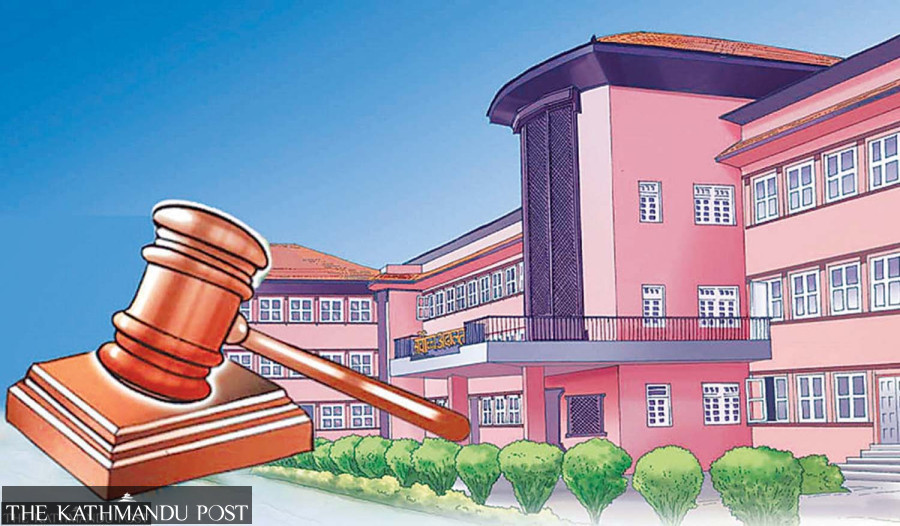Editorial
Inviting judicial overreach
We repeatedly see that the court is being asked to rule on what are essentially political disputes.
The three branches of the government function through a system of check and balance. When one of the executive, the legislative or the judicial branches exceeds its bounds, the others remind it of its constitutional limits. In the post-1990 democratic setup, the judiciary for one has by and large played a positive role in upholding democratic values that had repeatedly come under assault, particularly by the executives who refused to accept any limits on their powers. Yet of late some questionable verdicts of the top court in the country have raised the spectre of a ‘judicial supremacy’. On May 3, a division bench of the Supreme Court raised many eyebrows when it ruled that the Speaker of the Gandaki Provincial assembly should not be counted as an assembly member in the government formation process. So, in the 60-member assembly, even 30 members could constitute a majority. Back in March 2021, in a highly unanticipated decision, deciding what was essentially a petition challenging the party’s name, the court dissolved the ruling Nepal Communist Party. A couple of months later, the court even appointed Sher Bahadur Deuba the new prime minister.
As there are disputes on government formation in nearly each of the seven provinces, the Supreme Court could time and again be asked to settle them, just like in Gandaki. That is not all. The decision on judging the legality of the recent split of the Janata Samajbadi Party Nepal also now rests with the top court. What we repeatedly see is that the court is being asked to rule on what are essentially political disputes. If there was even a minimum level of understanding among our major political actors, many of the disputes in the provinces could have been settled among themselves. In other words, it is our major political actors who are inviting judicial activism. This in turn undermines the credibility of the judiciary. Yet that is only one worry. If our political actors continue to turn to the courts to handle all major and minor political disputes, then we should not be surprised if the third branch of the state starts acting more and more arbitrarily. There is then also the risk of the courts being cooped by other power centres, as is the case, say, in our neighbouring Pakistan or Myanmar.
In order to uphold its image as a neutral interpreter of the constitution and other laws, the judiciary could do its bit by declining to hear cases of certain nature that are best decided through political dialogue, or through healthy discussions in the sovereign parliament. Our political actors should also learn to act more maturely. Yes, the kind of electoral system the country has is unlikely to ensure a high level of political stability. Yet our politicians cannot get away by putting all the blame on the system. They too must learn to show at least a minimum level of political maturity. Again, the democratic system only works through check and balance. If one organ of the state forgets its duties, the whole system destabilises.




 9.93°C Kathmandu
9.93°C Kathmandu














